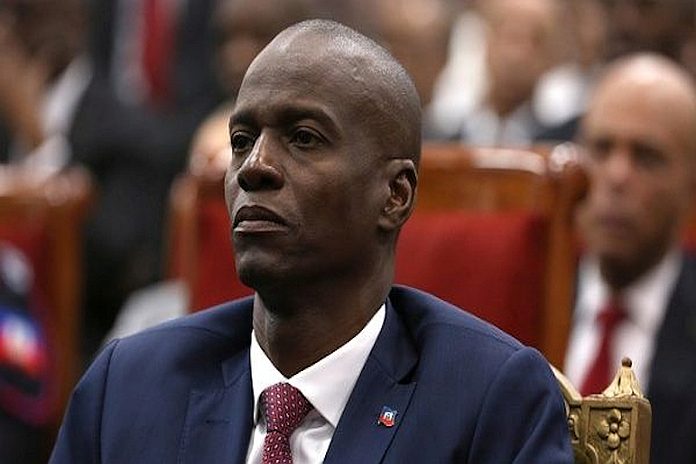By Caribbean News Global ![]()
SWITZERLAND/HAITI — Spokesperson for the UN High Commissioner for Human Rights, Marta Hurtado warns of increased political tensions in Haiti, coupled with insecurity and structural inequalities.
“We are concerned that persistent insecurity, poverty and structural inequalities in Haiti coupled with increasing political tensions may lead to a pattern of public discontent followed by violent police repression and other human rights violations,” Hurtado warned on Tuesday, at a regular briefing in Geneva.
“In recent months, kidnappings for ransom, attacks by criminal gangs against perceived rival neighbourhoods and widespread insecurity have increased in a context of almost total impunity. In parallel, political tensions are resurfacing due to disputes over the timing and scope of elections and a referendum on constitutional reform proposed by the government.” Adding to the unpredictable, “calls for mass protests have been growing. This, in turn, raises concerns of renewed human rights violations by security forces during the policing of protests as seen during the months-long protests in 2018 and 2019, as well as during demonstrations in October and November of last year.”
The reality in Haiti is there for all to see, Pierre Esperance said last December: “In Haiti, the people are not living; they are just surviving. Holding all the power, as the government, is only one branch – the executive, in the hands of one man only. President Jovenel Moïse. With regard to the other branches of government, there is no parliament and the judiciary is intimidated.
“Since January 2020 there has been no parliament, no Senate. There is no counterbalance to president Moïse. He is governing by decree, making policy decisions that benefit only his own interest and that of his henchmen. They support gangs of villains, terrorizing dissidents, and they operate the levers of government, including the treasury, with no accountability.”
According to an OHCHR report, the human rights violations by Haitian law enforcement officials and the human rights abuses by gang members during the social unrest of 2018-2019, are documented in a report by the Human Rights Service of the UN Integrated Office in Haiti and the UN Human Rights Office, released Tuesday.
The report shows a pattern of human rights violations and abuses followed by near lack of accountability. In addition, it documents violations to the rights of peaceful assembly and freedom of expression. The report also documents the impacts of the demonstrations and barricades erected, especially in 2019, on the daily lives of the Haitian people. More specifically, it addresses the restrictions on their liberty of movement, their access to health care, including sexual and reproductive health, their access to education, and their right to food. It also highlights the impact of barricades in the prison population.
Recommendations for the authorities advised immediately action to avoid repetition of these human rights violations and abuses by ensuring that law enforcement officers abide by international norms and standards regarding the use of force when dealing with protests. The authorities should also ensure that gangs do not interfere with people’s right to demonstrate peacefully. The government should also guarantee accountability for past violations and abuses, ensuring justice, truth, and reparations.
Haiti should also take steps to address the population’s grievances and the root causes that fuelled the protests, including widespread impunity, allegations of corruption, persistent poverty, structural inequalities, limited access to social services, and other difficulties in the enjoyment of economic and social rights by the Haitian people.
On December 12, the Core Group – which comprises the special representatives of the United Nations Secretary-General and the Organization of American States, as well as the ambassadors of Brazil, Canada, France, Germany, Spain, the European Union, and the US – expressed concern about two new security decrees passed by Haiti’s President Jovenel Moïse, reported Latin News Daily.
“The recent presidential decrees creating a national intelligence agency and on strengthening public security are worrying, because preliminary analyses indicate that they do not appear to be in line with international human rights norms and standards. They also risk leading to a further crackdown on the rights of freedom of peaceful assembly, association and freedom of expression. Acts of violence committed by protesters in previous demonstrations should not serve as a pretext to curtail fundamental freedom and shrink civic space,” said, OHCHR press briefing notes on Haiti.
Last December, Caribbean News Global (CNG) published – Haiti Military – This is the new military of Haiti being trained. For what purpose? #HaitiMilitary
According to Hurtado: “We welcome the Haitian National Police’s commitment to reform practices documented in the report, including ensuring that officers participating in the policing of protests receive adequate training and instructions. UN Human Rights Office stands ready to continue supporting State authorities in their fulfilment of human rights international obligations. It expresses its willingness to continue working towards the establishment of a country office.”
To read the full report, please click here.





